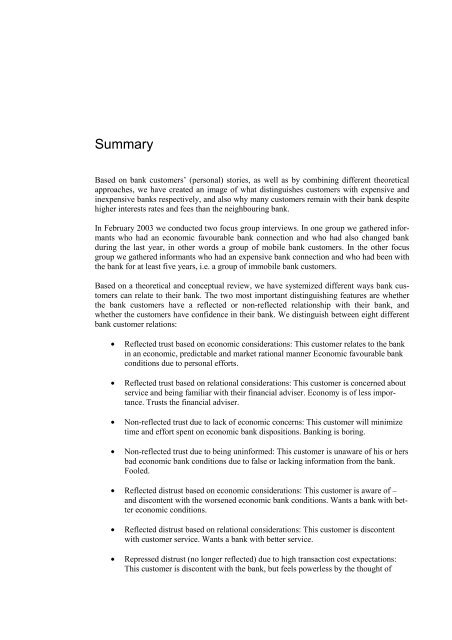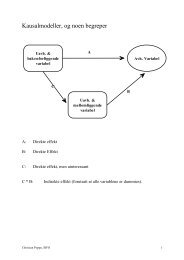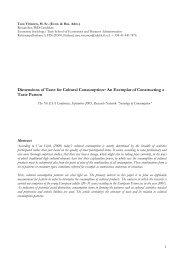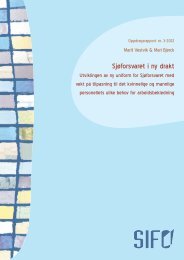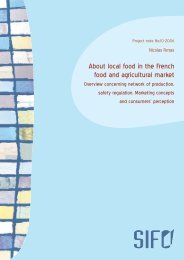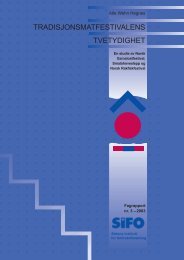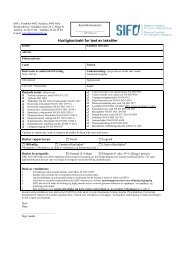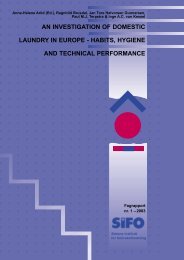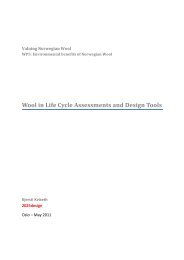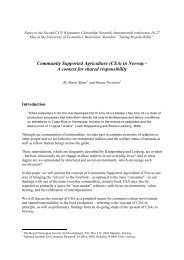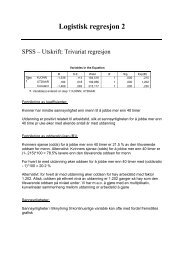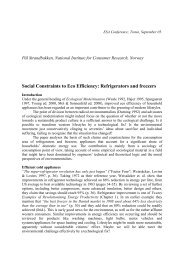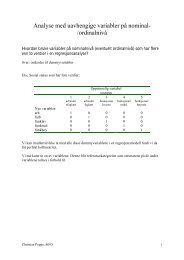You also want an ePaper? Increase the reach of your titles
YUMPU automatically turns print PDFs into web optimized ePapers that Google loves.
Summary<br />
Based on bank customers’ (personal) stories, as well as by combining different theoretical<br />
approaches, we have created an image of what distinguishes customers with expensive and<br />
inexpensive banks respectively, and also why many customers remain with their bank despite<br />
higher interests rates and fees than the neighbouring bank.<br />
In February 2003 we conducted two focus group interviews. In one group we gathered informants<br />
who had an economic favourable bank connection and who had also changed bank<br />
during the last year, in other words a group of mobile bank customers. In the other focus<br />
group we gathered informants who had an expensive bank connection and who had been with<br />
the bank for at least five years, i.e. a group of immobile bank customers.<br />
Based on a theoretical and conceptual review, we have systemized different ways bank customers<br />
can relate to their bank. The two most important distinguishing features are whether<br />
the bank customers have a reflected or non-reflected relationship with their bank, and<br />
whether the customers have confidence in their bank. We distinguish between eight different<br />
bank customer relations:<br />
• Reflected trust based on economic considerations: This customer relates to the bank<br />
in an economic, predictable and market rational manner Economic favourable bank<br />
conditions due to personal efforts.<br />
• Reflected trust based on relational considerations: This customer is concer<strong>ned</strong> about<br />
service and being familiar with their financial adviser. Economy is of less importance.<br />
Trusts the financial adviser.<br />
• Non-reflected trust due to lack of economic concerns: This customer will minimize<br />
time and effort spent on economic bank dispositions. Banking is boring.<br />
• Non-reflected trust due to being uninformed: This customer is unaware of his or hers<br />
bad economic bank conditions due to false or lacking information from the bank.<br />
Fooled.<br />
• Reflected distrust based on economic considerations: This customer is aware of –<br />
and discontent with the worse<strong>ned</strong> economic bank conditions. Wants a bank with better<br />
economic conditions.<br />
• Reflected distrust based on relational considerations: This customer is discontent<br />
with customer service. Wants a bank with better service.<br />
• Repressed distrust (no longer reflected) due to high transaction cost expectations:<br />
This customer is discontent with the bank, but feels powerless by the thought of


